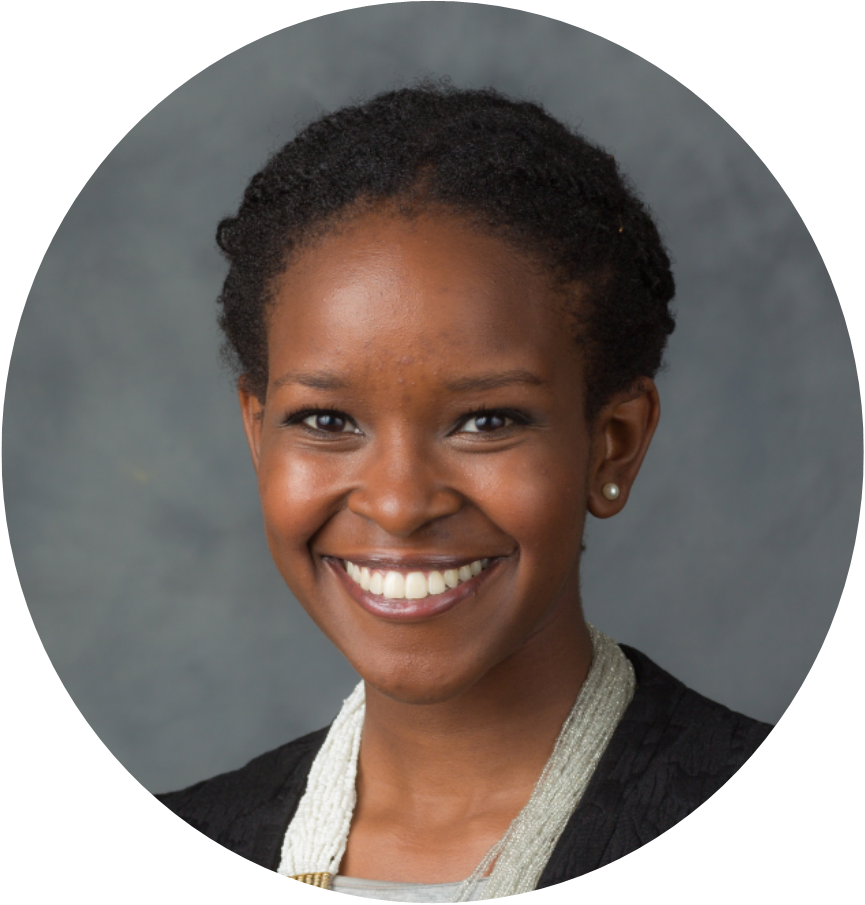Deacon Spotlight: Sonia Kuguru
Sonia Kuguru (BA 2015, Politics, International Affairs, and Religion)
Wake Forest Fellow in the Office of the President at Wake Forest University in Winston-Salem, NC
Describe your current job role.

I’m currently a member of the Wake Forest Fellows class, a year long program based on personal and career development through opportunities in ten different departments University-wide. In my role as a Fellow in the Office of the President, I research future University projects, facilitate communications to connect our Office with students, faculty, and staff, develop social media strategies, plan events, and serve on committees ranging from diversity and inclusion, Greek life and budget planning. The Fellows Program is primarily an educational opportunity – learning from application while giving insight, ideas and fresh eyes to University administration. Fellows spend a lot of time learning from senior administrators and developing ourselves personally through professional development exercises and workshops all year.
I also have the immense pleasure of having Dr. Hatch and Chief of Staff Mary Pugel as my principals, and meet with them weekly to discuss work and life, relationships which have proven to be a highlight of this year. Lastly, while Fellows do a lot of different and new work, for me, writing white papers and letters to planning a University-sponsored Habitat House, the same skills I brought to being a student at Wake Forest apply to being a Fellow here – willing hands and a creative mind.
Tell us about an interesting project that you’ve worked on recently.
Throughout my portfolio, very few projects will see their realization while I’m still in this role. One of my most interesting projects has been to research ways in which Wake Forest can be a more proactive and conscious community partner in Winston-Salem. Our office recognizes the need, hunger, and poverty surrounding our campus, and it is a priority to meet that need in a humble and respectful manner, working alongside the community to help deliver sustainable, community-created solutions. My work consists of understanding community desires and needs, developing and researching the feasibility of potential solutions, and looking for best practices. It’s been the biggest project I’ve ever worked on, and I look forward to seeing the ways Wake Forest will live out Pro Humanitate.
What do you know now that you wish you had known about being a working professional?
While I’m still learning, I wish I knew that it’s alright to be yourself and bring your personality to your job. I thought that professionalism was mutually exclusive from fun, but I’ve found that if your work and work ethic speak for themselves, you can be free to bring your whole self to the office.
How did Wake Forest prepare you for the world of work?
Wake Forest prepared me for the world of work through lessons, sometimes hard ones, which deepened my belief in the importance of interpersonal communication, hard work, and integrity. I come from a community where face-to-face interaction is king, and Wake Forest shares that tendency. Although my work transition was into a position also at my alma mater, I have certainly learned the importance of clear and prompt communication this year, and knowing how to talk to and relate to nearly anyone is an important skill wherever you go.
I’ve also found that “Work Forest” prepared me for long and short-term, high pressure work; thanks to rigorous classes and high-expectation professors, I can learn and apply new lessons well – a skill important in any job. I’m also learning that I don’t need to know everything pertaining to a project to start or be a part of it, but a positive attitude in getting things done can make a lot happen. And lastly, but simply, integrity and character make all the difference. Trust and strong values will seed you above competition, especially regarding sensitive work. Always be proud to do the right thing.
What advice would you give to current Wake Forest students and/or young alumni who are about to start their first professional full-time job?
There is no perfect entry-level job. While I happen to think mine is quite close, there will be things I don’t enjoy as much as others. Dr. Hatch tells me all the time that that will follow me throughout my career, and I believe it must be true. Sometimes, you take what you get, and you work hard and do well at it – as you rue the task – until someone notices and gives you something better. It’s so cliche, but it’s so true.
Have you been mentored by anyone in your professional field since entering the workforce? If so, what impact has that had on you?
Mentorship is a true strength of our Wake Forest community – I’ve found mentors throughout my five years here, and have had the pleasure of staying close to many, many mentors I made as a student. Additionally, my professional mentors, Mary Pugel and Dr. Hatch, have shepherded me, with patience and good advice, through my first year at work. This year, though, I’ve made the unlikely mentor and friend of one Emily Wilson, who has taught me to be myself and to demand the most of those around me for a worthy goal. I’ve learned to think critically and outside the box, and to engage with everyone equally. She has impacted my work-life philosophy in ways, I’m sure, she wouldn’t know.
What are you interested in pursuing after your Fellows position comes to an end?
In the coming years, I plan to pursue a career in human rights and international law, with more robust work, school, and life experiences behind me. Growing up in Kenya and in a home full of egalitarians, I’ve always been passionate about injustice and the rights and livelihoods of the underprivileged and disadvantaged, and would like to work toward the political and social empowerment of such groups.
